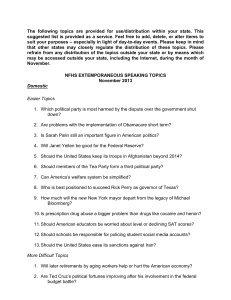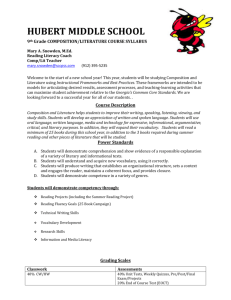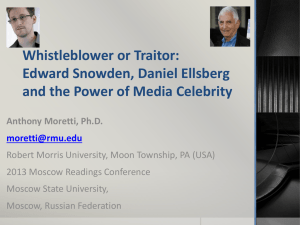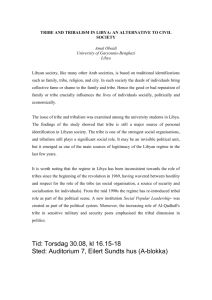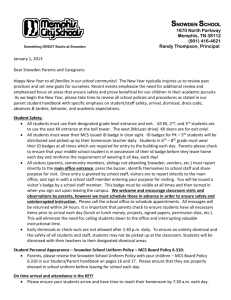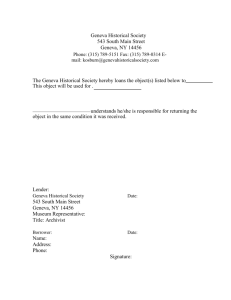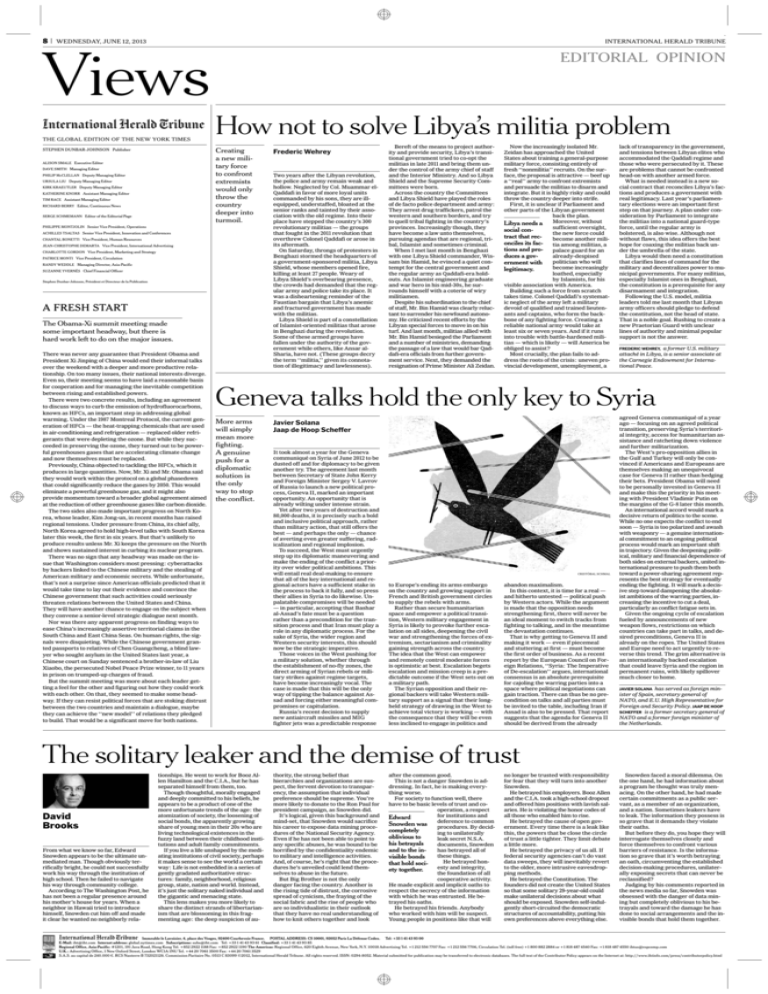
Except INDIA
8
.
| WEDNESDAY, JUNE 12, 2013
Views
International Herald Tribune
THE GLOBAL EDITION OF THE NEW YORK TIMES
INTERNATIONAL HERALD TRIBUNE
editorial opinion
How not to solve Libya’s militia problem
Creating
a new military force
to confront
extremists
would only
throw the
country
deeper into
turmoil.
STEPHEN DUNBAR-JOHNSON Publisher
ALISON SMALE Executive Editor
DAVE SMITH Managing Editor
PHILIP McCLELLAN Deputy Managing Editor
URSULA LIU Deputy Managing Editor
KIRK KRAEUTLER Deputy Managing Editor
KATHERINE KNORR Assistant Managing Editor
TIM RACE Assistant Managing Editor
RICHARD BERRY Editor, Continuous News
SERGE SCHMEMANN Editor of the Editorial Page
PHILIPPE MONTJOLIN Senior Vice President, Operations
ACHILLES TSALTAS Senior Vice President, Innovation and Conferences
CHANTAL BONETTI Vice President, Human Resources
JEAN-CHRISTOPHE DEMARTA Vice President, International Advertising
CHARLOTTE GORDON Vice President, Marketing and Strategy
PATRICE MONTI Vice President, Circulation
RANDY WEDDLE Managing Director, Asia-Pacific
SUZANNE YVERNÈS Chief Financial Officer
Stephen Dunbar-Johnson, Président et Directeur de la Publication
A FRESH START
The Obama-Xi summit meeting made
some important headway, but there is
hard work left to do on the major issues.
There was never any guarantee that President Obama and
President Xi Jinping of China would end their informal talks
over the weekend with a deeper and more productive relationship. On too many issues, their national interests diverge.
Even so, their meeting seems to have laid a reasonable basis
for cooperation and for managing the inevitable competition
between rising and established powers.
There were two concrete results, including an agreement
to discuss ways to curb the emission of hydrofluorocarbons,
known as HFCs, an important step in addressing global
warming. Under the 1987 Montreal Protocol, the current generation of HFCs — the heat-trapping chemicals that are used
in air-conditioning and refrigeration — replaced older refrigerants that were depleting the ozone. But while they succeeded in preserving the ozone, they turned out to be powerful greenhouses gases that are accelerating climate change
and now themselves must be replaced.
Previously, China objected to tackling the HFCs, which it
produces in large quantities. Now, Mr. Xi and Mr. Obama said
they would work within the protocol on a global phasedown
that could significantly reduce the gases by 2050. This would
eliminate a powerful greenhouse gas, and it might also
provide momentum toward a broader global agreement aimed
at the reduction of other greenhouse gases like carbon dioxide.
The two sides also made important progress on North Korea, whose leader, Kim Jong-un, in recent months has raised
regional tensions. Under pressure from China, its chief ally,
North Korea agreed to hold high-level talks with South Korea
later this week, the first in six years. But that’s unlikely to
produce results unless Mr. Xi keeps the pressure on the North
and shows sustained interest in curbing its nuclear program.
There was no sign that any headway was made on the issue that Washington considers most pressing: cyberattacks
by hackers linked to the Chinese military and the stealing of
American military and economic secrets. While unfortunate,
that’s not a surprise since American officials predicted that it
would take time to lay out their evidence and convince the
Chinese government that such activities could seriously
threaten relations between the United States and China.
They will have another chance to engage on the subject when
they convene a senior-level strategic dialogue next month.
Nor was there any apparent progress on finding ways to
ease China’s increasingly assertive territorial claims in the
South China and East China Seas. On human rights, the signals were disquieting. While the Chinese government granted passports to relatives of Chen Guangcheng, a blind lawyer who sought asylum in the United States last year, a
Chinese court on Sunday sentenced a brother-in-law of Liu
Xiaobo, the persecuted Nobel Peace Prize winner, to 11 years
in prison on trumped-up charges of fraud.
But the summit meeting was more about each leader getting a feel for the other and figuring out how they could work
with each other. On that, they seemed to make some headway. If they can resist political forces that are stoking distrust
between the two countries and maintain a dialogue, maybe
they can achieve the ‘‘new model’’ of relations they pledged
to build. That would be a significant move for both nations.
Frederic Wehrey
Two years after the Libyan revolution,
the police and army remain weak and
hollow. Neglected by Col. Muammar elQaddafi in favor of more loyal units
commanded by his sons, they are illequipped, understaffed, bloated at the
senior ranks and tainted by their association with the old regime. Into their
place have stepped the country’s 300
revolutionary militias — the groups
that fought in the 2011 revolution that
overthrew Colonel Qaddafi or arose in
its aftermath.
On Saturday, throngs of protesters in
Benghazi stormed the headquarters of
a government-sponsored militia, Libya
Shield, whose members opened fire,
killing at least 27 people. Weary of
Libya Shield’s overbearing presence,
the crowds had demanded that the regular army and police take its place. It
was a disheartening reminder of the
Faustian bargain that Libya’s anemic
and fractured government has made
with the militias.
Libya Shield is part of a constellation
of Islamist-oriented militias that arose
in Benghazi during the revolution.
Some of these armed groups have
fallen under the authority of the government while others, like Ansar alSharia, have not. (These groups decry
the term ‘‘militia,’’ given its connotation of illegitimacy and lawlessness).
Bereft of the means to project authority and provide security, Libya’s transitional government tried to co-opt the
militias in late 2011 and bring them under the control of the army chief of staff
and the Interior Ministry. And so Libya
Shield and the Supreme Security Committees were born.
Across the country the Committees
and Libya Shield have played the roles
of de facto police department and army:
They arrest drug traffickers, patrol the
western and southern borders, and try
to quell tribal fighting in the country’s
provinces. Increasingly though, they
have become a law unto themselves,
pursuing agendas that are regional, tribal, Islamist and sometimes criminal.
When I met last month in Benghazi
with one Libya Shield commander, Wissam bin Hamid, he evinced a quiet contempt for the central government and
the regular army as Qaddafi-era holdouts. An Islamist engineering graduate
and war hero in his mid-30s, he surrounds himself with a coterie of wiry
militiamen.
Despite his subordination to the chief
of staff, Mr. Bin Hamid was clearly reluctant to surrender his newfound autonomy. He criticized recent efforts by the
Libyan special forces to move in on his
turf. And last month, militias allied with
Mr. Bin Hamid besieged the Parliament
and a number of ministries, demanding
the passage of a law that would bar Qaddafi-era officials from further government service. Next, they demanded the
resignation of Prime Minister Ali Zeidan.
Now the increasingly isolated Mr.
Zeidan has approached the United
States about training a general-purpose
military force, consisting entirely of
fresh ‘‘nonmilitia’’ recruits. On the surface, the proposal is attractive — beef up
a ‘‘real’’ army to confront extremists
and persuade the militias to disarm and
integrate. But it is highly risky and could
throw the country deeper into strife.
First, it is unclear if Parliament and
other parts of the Libyan government
back the plan.
Libya needs a Moreover, without
sufficient oversight,
social conthe new force could
tract that recbecome another milionciles its fac- tia among militias, a
tions and pro- palace guard for an
already-despised
duces a government with politician who will
become increasingly
legitimacy.
loathed, especially
by Islamists, for his
visible association with America.
Building such a force from scratch
takes time. Colonel Qaddafi’s systematic neglect of the army left a military
devoid of qualified and trained lieutenants and captains, who form the backbone of any fighting force. Creating a
reliable national army would take at
least six or seven years. And if it runs
into trouble with battle-hardened militias — which is likely — will America be
obliged to assist?
Most crucially, the plan fails to address the roots of the crisis: uneven provincial development, unemployment, a
lack of transparency in the government,
and tensions between Libyan elites who
accommodated the Qaddafi regime and
those who were persecuted by it. These
are problems that cannot be confronted
head-on with another armed force.
What is needed instead is a new social contract that reconciles Libya’s factions and produces a government with
real legitimacy. Last year’s parliamentary elections were an important first
step on that journey. A plan under consideration by Parliament to integrate
the militias into a national guard-type
force, until the regular army is
bolstered, is also wise. Although not
without flaws, this idea offers the best
hope for coaxing the militias back under the umbrella of the state.
Libya would then need a constitution
that clarifies lines of command for the
military and decentralizes power to municipal governments. For many militias,
especially Islamist ones in Benghazi,
the constitution is a prerequisite for any
disarmament and integration.
Following the U.S. model, militia
leaders told me last month that Libyan
army officers should pledge to defend
the constitution, not the head of state.
That is a noble goal. Rushing to create a
new Praetorian Guard with unclear
lines of authority and minimal popular
support is not the answer.
a former U.S. military
attaché in Libya, is a senior associate at
the Carnegie Endowment for International Peace.
FREDERIC WEHREY,
Geneva talks hold the only key to Syria
More arms
will simply
mean more
fighting.
A genuine
push for a
diplomatic
solution is
the only
way to stop
the conflict.
Javier Solana
Jaap de Hoop Scheffer
It took almost a year for the Geneva
communiqué on Syria of June 2012 to be
dusted off and for diplomacy to be given
another try. The agreement last month
between Secretary of State John Kerry
and Foreign Minister Sergey V. Lavrov
of Russia to launch a new political process, Geneva II, marked an important
opportunity. An opportunity that is
already wilting under intense strain.
Yet after two years of destruction and
80,000 deaths, it is precisely such a bold
and inclusive political approach, rather
than military action, that still offers the
best — and perhaps the only — chance
of averting even greater suffering, radicalization and regional implosion.
To succeed, the West must urgently
step up its diplomatic maneuvering and
make the ending of the conflict a priority over wider political ambitions. This
will entail real deal-making to ensure
that all of the key international and regional actors have a sufficient stake in
the process to back it fully, and so press
their allies in Syria to do likewise. Unpalatable compromises will be needed
— in particular, accepting that Bashar
al-Assad’s fate must be a question
rather than a precondition for the transition process and that Iran must play a
role in any diplomatic process. For the
sake of Syria, the wider region and
Western security interests, this should
now be the strategic imperative.
Those voices in the West pushing for
a military solution, whether through
the establishment of no-fly zones, the
direct arming of Syrian rebels or military strikes against regime targets,
have become increasingly vocal. The
case is made that this will be the only
way of tipping the balance against Assad and forcing either meaningful compromises or capitulation.
Russia’s recent decision to supply
new antiaircraft missiles and MIG
fighter jets was a predictable response
CRISTÓBAL SCHMAL
to Europe’s ending its arms embargo
on the country and growing support in
French and British government circles
to supply the rebels with arms.
Rather than secure humanitarian
space and empower a political transition, Western military engagement in
Syria is likely to provoke further escalation on all sides, deepening the civil
war and strengthening the forces of extremism, sectarianism and criminality
gaining strength across the country.
The idea that the West can empower
and remotely control moderate forces
is optimistic at best. Escalation begets
escalation and mission creep is a predictable outcome if the West sets out on
a military path.
The Syrian opposition and their regional backers will take Western military support as a signal that their longheld strategy of drawing in the West to
achieve total victory is working — with
the consequence that they will be even
less inclined to engage in politics and
abandon maximalism.
In this context, it is time for a real —
and hitherto untested — political push
by Western actors. While the argument
is made that the opposition needs
strengthening first, there will never be
an ideal moment to switch tracks from
fighting to talking, and in the meantime
the devastation continues.
That is why getting to Geneva II and
making it work — even if piecemeal
and stuttering at first — must become
the first order of business. As a recent
report by the European Council on Foreign Relations, ‘‘Syria: The Imperative
of De-escalation’’ argues, international
consensus is an absolute prerequisite
for cajoling the warring parties into a
space where political negotiations can
gain traction. There can thus be no precondition on talks and all parties must
be invited to the table, including Iran if
Assad is also to be pressed. That report
suggests that the agenda for Geneva II
should be derived from the already
agreed Geneva communiqué of a year
ago — focusing on an agreed political
transition, preserving Syria’s territorial integrity, access for humanitarian assistance and ratcheting down violence
and further militarization.
The West’s pro-opposition allies in
the Gulf and Turkey will only be convinced if Americans and Europeans are
themselves making an unequivocal
case for Geneva II rather than hedging
their bets. President Obama will need
to be personally invested in Geneva II
and make this the priority in his meeting with President Vladimir Putin on
the margins of the G-8 later this month.
An international accord would mark a
decisive return of politics to the scene.
While no one expects the conflict to end
soon — Syria is too polarized and awash
with weaponry — a genuine international commitment to an ongoing political
process would mark an important shift
in trajectory. Given the deepening political, military and financial dependence of
both sides on external backers, united international pressure to push them both
toward a power-sharing agreement represents the best strategy for eventually
ending the fighting. It will mark a decisive step toward dampening the absolutist ambitions of the warring parties, increasing the incentive to cut a deal,
particularly as conflict fatigue sets in.
Given the ongoing cycle of escalation
fueled by announcements of new
weapon flows, restrictions on which
countries can take part in talks, and desired preconditions, Geneva II is
already on the ropes. The United States
and Europe need to act urgently to reverse this trend. The grim alternative is
an internationally backed escalation
that could leave Syria and the region in
permanent ruins, with likely spillover
much closer to home.
has served as foreign minister of Spain, secretary general of
NATO, and E.U. High Representative for
Foreign and Security Policy. JAAP DE HOOP
SCHEFFER is a former secretary general of
NATO and a former foreign minister of
the Netherlands.
JAVIER SOLANA
The solitary leaker and the demise of trust
David
Brooks
From what we know so far, Edward
Snowden appears to be the ultimate unmediated man. Though obviously terrifically bright, he could not successfully
work his way through the institution of
high school. Then he failed to navigate
his way through community college.
According to The Washington Post, he
has not been a regular presence around
his mother’s house for years. When a
neighbor in Hawaii tried to introduce
himself, Snowden cut him off and made
it clear he wanted no neighborly rela-
International Herald Tribune
tionships. He went to work for Booz Allen Hamilton and the C.I.A., but he has
separated himself from them, too.
Though thoughtful, morally engaged
and deeply committed to his beliefs, he
appears to be a product of one of the
more unfortunate trends of the age: the
atomization of society, the loosening of
social bonds, the apparently growing
share of young men in their 20s who are
living technological existences in the
fuzzy land between their childhood institutions and adult family commitments.
If you live a life unshaped by the mediating institutions of civil society, perhaps
it makes sense to see the world a certain
way: Life is not embedded in a series of
gently gradated authoritative structures: family, neighborhood, religious
group, state, nation and world. Instead,
it’s just the solitary naked individual and
the gigantic and menacing state.
This lens makes you more likely to
share the distinct strands of libertarianism that are blossoming in this fragmenting age: the deep suspicion of au-
thority, the strong belief that
hierarchies and organizations are suspect, the fervent devotion to transparency, the assumption that individual
preference should be supreme. You’re
more likely to donate to the Ron Paul for
president campaign, as Snowden did.
It’s logical, given this background and
mind-set, that Snowden would sacrifice
his career to expose data mining procedures of the National Security Agency.
Even if he has not been able to point to
any specific abuses, he was bound to be
horrified by the confidentiality endemic
to military and intelligence activities.
And, of course, he’s right that the procedures he’s unveiled could lend themselves to abuse in the future.
But Big Brother is not the only
danger facing the country. Another is
the rising tide of distrust, the corrosive
spread of cynicism, the fraying of the
social fabric and the rise of people who
are so individualistic in their outlook
that they have no real understanding of
how to knit others together and look
after the common good.
This is not a danger Snowden is addressing. In fact, he is making everything worse.
For society to function well, there
have to be basic levels of trust and cooperation, a respect
for institutions and
Edward
Snowden was deference to common
procedures. By decidcompletely
ing to unilaterally
oblivious to
leak secret N.S.A.
his betrayals
documents, Snowden
has betrayed all of
and to the inthese things.
visible bonds
He betrayed honthat hold sociesty
and integrity,
ety together.
the foundation of all
cooperative activity.
He made explicit and implicit oaths to
respect the secrecy of the information
with which he was entrusted. He betrayed his oaths.
He betrayed his friends. Anybody
who worked with him will be suspect.
Young people in positions like that will
no longer be trusted with responsibility
for fear that they will turn into another
Snowden.
He betrayed his employers. Booz Allen
and the C.I.A. took a high-school dropout
and offered him positions with lavish salaries. He is violating the honor codes of
all those who enabled him to rise.
He betrayed the cause of open government. Every time there is a leak like
this, the powers that be close the circle
of trust a little tighter. They limit debate
a little more.
He betrayed the privacy of us all. If
federal security agencies can’t do vast
data sweeps, they will inevitably revert
to the older, more intrusive eavesdropping methods.
He betrayed the Constitution. The
founders did not create the United States
so that some solitary 29-year-old could
make unilateral decisions about what
should be exposed. Snowden self-indulgently short-circuited the democratic
structures of accountability, putting his
own preferences above everything else.
Snowden faced a moral dilemma. On
the one hand, he had information about
a program he thought was truly menacing. On the other hand, he had made
certain commitments as a public servant, as a member of an organization,
and a nation. Sometimes leakers have
to leak. The information they possess is
so grave that it demands they violate
their oaths.
But before they do, you hope they will
interrogate themselves closely and
force themselves to confront various
barriers of resistance. Is the information so grave that it’s worth betraying
an oath, circumventing the established
decision-making procedures, unilaterally exposing secrets that can never be
reclassified?
Judging by his comments reported in
the news media so far, Snowden was
obsessed with the danger of data mining but completely oblivious to his betrayals and toward the damage he has
done to social arrangements and the invisible bonds that hold them together.
Immeuble le Lavoisier, 4, place des Vosges, 92400 Courbevoie France. POSTAL ADDRESS: CS 10001, 92052 Paris La Défense Cedex. Tel: +33 1 41 43 93 00
E-Mail: iht@iht.com Internet address: global.nytimes.com Subscriptions: subs@iht.com Tel: +33 1 41 43 93 61 Classified: +33 1 41 43 93 85
Regional Office, Asia-Pacific: #1201, 191 Java Road, Hong Kong Tel. +852 2922 1188 Fax: +852 2922 1190 The Americas: Regional Office, 620 Eighth Avenue, New York, N.Y. 10018 Advertising Tel. +1 212 556 7707 Fax: +1 212 556 7706, Circulation Tel. (toll free) +1 800 882 2884 or +1 818 487 4540 Fax: +1 818 487 4550 ihtus@espcomp.com
U.K.: Advertising Office, 1 New Oxford Street, London WC1A 1NU Tel. +44 20 7061 3500 Fax: +44 20 7061 3529
S.A.S. au capital de 240.000 ¤. RCS Nanterre B 732021126. Commission Paritaire No. 0513 C 83099 ©2012, International Herald Tribune. All rights reserved. ISSN: 0294-8052. Material submitted for publication may be transferred to electronic databases. The full text of the Contributor Policy appears on the Internet at: http://www.ihtinfo.com/press/contributorpolicy.html


